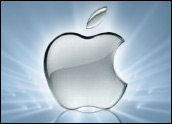
In an effort to reach out to open source developers, Apple Computer this week said it will release buildable kernel source code for Intel-based Macs, beginning with code for Mac OS X, version 10.4.7. The firm previously released similar code for its PowerPC-based Macs.
Apple quietly announced the open code release during its World Wide Developers Conference in San Francisco, where it was busy showing off the very latest Mac OS X, version 10.5, dubbed “Leopard.”
Reaching Out
Apple also launched Mac OS Forge, a new site for developers of open source Mac software, and released code for three other pieces of software: a new iCal calendaring server available under the BSD license; and Bonjour and Launchd, licensed under the Apache license and intended to enhance cross-platform adoption.
Mac OS Forge will support and host code for WebKit and other open source projects focused on Mac OS X, including those migrating from OpenDarwin.org, according to Apple’s Open Source Product Manager Ernest Prabhakar.
With this week’s moves, Apple is trying to correct a course previously set for its Intel-based operating system software that angered and alienated many free and open source software supporters and users.
After its announcement of a move to Intel processor support in Mac computers, there was hope that Apple would stay committed to greater openness with Mac OS X, but that did not happen, and Apple heard about it from a displeased open source community.
“As examples, no code from the Intel version of Mac OS had been open sourced, and OpenDarwin.org decided to shut down — in part due to lack of participation from Apple,” said Gartner Research Vice President Michael Silver.
Many felt the company was retreating from its commitment to open source Mac OS components — a move that could be damaging, because developer mind share and a “community of fans” are key to Apple’s success in this area, he told LinuxInsider.
Keeping It Real
In addition, Apple still struggles in the shadow of Microsoft, with its ubiquitous Windows, and now Linux is also gaining support around the world, Silver said.
“There are still many more people developing for the Windows platform, so appealing to the open source community can help Apple improve its ratio,” he said. “In the U.S., Apple has a lot of cachet and some good momentum, but in other parts of the world, people are looking more at Linux, and Apple is less of a contender because of cost. Having some open source presence could help raise [Apple’s] profile abroad.”
Apple’s relationship with the open source software community has always been “weird,” Endpoint Technologies Associates Founder and President Roger Kay told LinuxInsider, explaining that while Apple boasts of Mac OS X’s open source BSD roots, the Apple operating system code is anything but open.
Unlike other computer companies, Apple continues to center its business and revenue on its hardware, helped by the popular iPod music and video player, Kay remarked.
“They’re very interested in selling hardware,” he said. “At the bottom of all this, it’s about Apple looking for more ways to sell hardware.”
If one considers openness a key factor for interoperability, he said, Apple falls far short of being as open as it could be.


















































